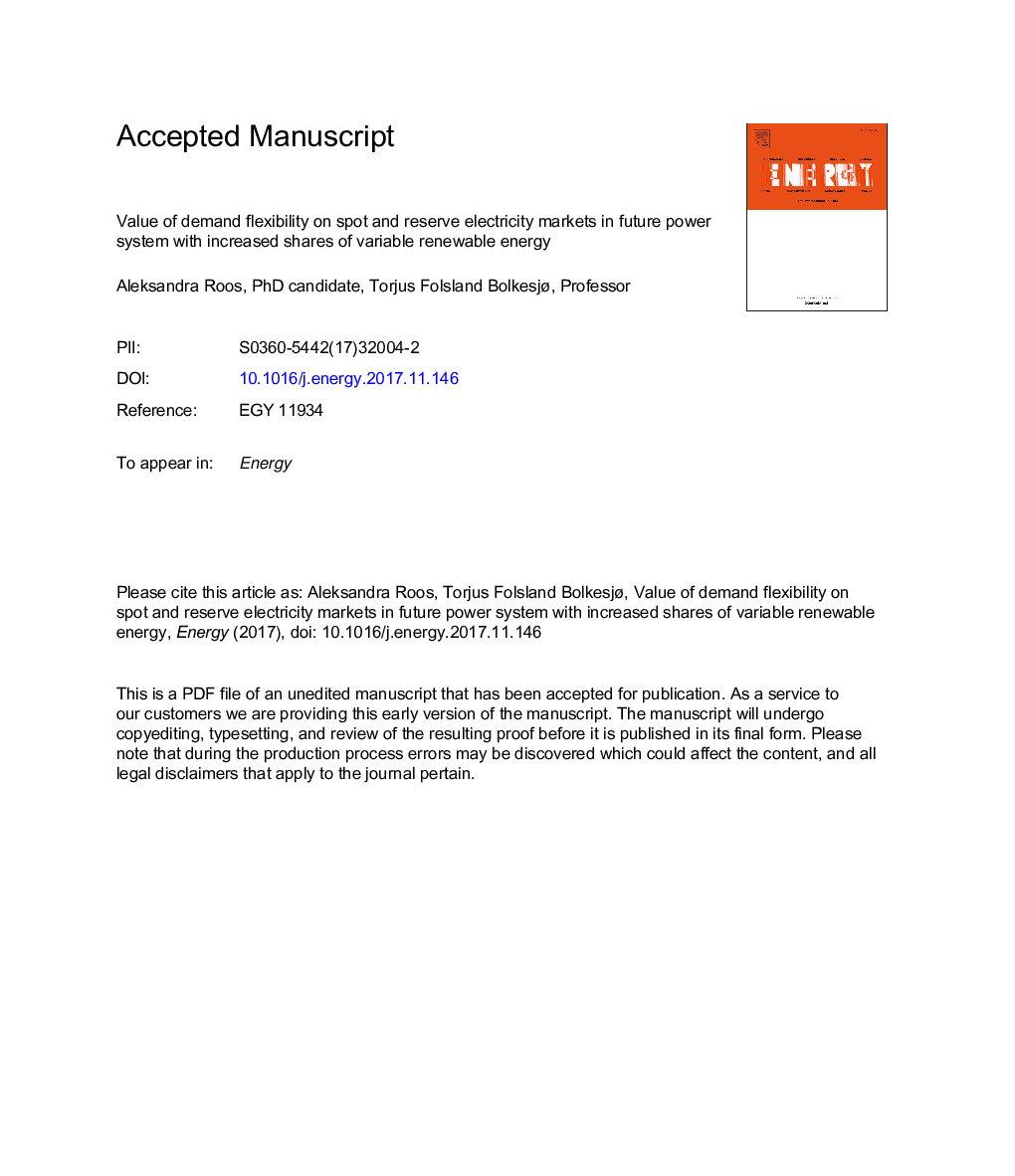| Article ID | Journal | Published Year | Pages | File Type |
|---|---|---|---|---|
| 8072312 | Energy | 2018 | 25 Pages |
Abstract
This paper analyzes the impacts of demand flexibility participation in spot and reserve markets in the German power system in 2030. We model the power system dispatch with and without reserve requirements using a partial equilibrium linear programming model, BalmoREG, to quantify the cost of reserves, the value of demand flexibility, and the optimal allocation between the spot market and reserve market. We find that the costs of providing reserves add 0.6-8.6% to the total system cost in the German 2030 power system. According to sensitivity studies, the cost of reserve provision increases substantially with reduced baseload shares or increased VRE shares, while transmission opportunities to neighboring countries reduce the cost. The modelled electricity price is especially sensitive to the addition of reserve requirements in situations of either very high VRE or very low VRE production.
Related Topics
Physical Sciences and Engineering
Energy
Energy (General)
Authors
Aleksandra Roos, Torjus Folsland Bolkesjø,
